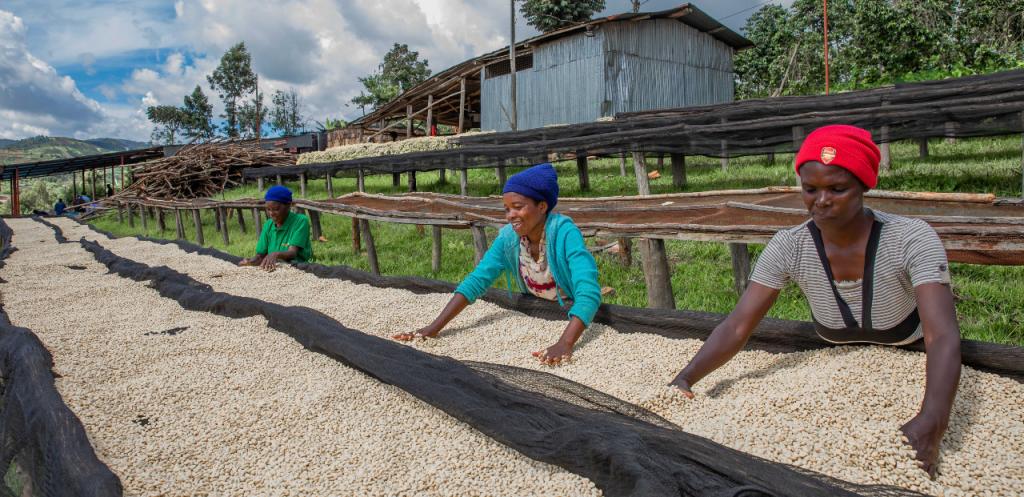Youth inclusion project helps keep Rwandan coffee sector alive

Rwanda has over 400,000 small-scale coffee growers. Most of these growers are ready to retire. But their children are not ready to take over the business. In 2018, CBI partnered with Agriterra to launch the Speciality Coffee Rwanda project. The goal of this project was to attract more young people to the coffee sector.
A new generation of coffee farmers
In Rwanda, the average coffee farmer is over 60 years old. Younger people should be taking over. But many of them find it difficult to enter the sector or have already found jobs elsewhere. In a few years, this could become a serious issue for Rwanda’s coffee industry. To help young people enter the Rwandan coffee sector, CBI partnered with Agriterra, a Dutch agriculture agency. Agriterra supports farmer-led businesses in developing economies with business development services.
Jean Marie Ntakirutimana is a business advisor at Agriterra. He explains that most farmers will only hire young people for the harvest and sorting period in Rwanda. “We want to bring businesses together and show them the importance of involving young people in the value chain,” says Mr Ntakirutimana. “Through the Speciality Coffee Rwanda project, we have been able to offer more activities, maximise our impact, and carry out better follow-up.”
Listening is the first step
The first thing CBI and Agriterra did was organise a workshop. It brought together different age groups to discuss concerns, challenges, and possible solutions. Mr Ntakirutimana says, “The workshop made it clear that young people in Rwanda face 3 main challenges in the coffee value chain. These are access to land, access to finance and a negative perception of the agricultural sector.”
To help with access to land and finance, CBI and Agriterra launched a multimedia campaign. It promoted youth inclusion in the coffee sector. It also informed young people about the opportunities in the industry via success stories and possible solutions to challenges. The results were very positive. Parents made land available to 30 young people. The youths then planted 2,500 coffee trees. Also, a local cooperative provided 4 hectares of land to 360 young coffee farmers.

Other business opportunities
Growing sustainable coffee takes time. The trees take 3 years to produce their first harvest. During this time, young farmers need to have something else to work on. To help with this, CBI partnered with 8 coffee processors to support business opportunities that also benefit the coffee industry. One example is animal rearing. This provides organic manure to fertilise coffee plants. With support from the coffee processors, 25 young people have now started a business rearing rabbits. Another 50 young people are raising chickens.
First exports for youth-owned coffee brand
Fiacre Dushimiyimana is a member of the Abakundakawa Rushashi cooperative. He shares how he and his co-workers have benefitted from this CBI project. “Our goal is to become the first youth group in the country that exports coffee internationally under the brand name Ishema Youth Coffee. It will be the first time in history that our country has exported sustainable coffee from a youth-owned brand.”
Mr Dushimiyamana adds that the cooperative has seen many positive results from taking part in CBI’s activities. “We have grown to 400 members and, in collaboration with the cooperative, youths have already planted around 30,000 new coffee trees,” he says. “We are lucky to have the support of CBI and Agriterra. Training future coffee farmers is crucial. It is the only way to keep Rwanda’s coffee sector alive.”
More information
Find out more about the Speciality Coffee Rwanda project.